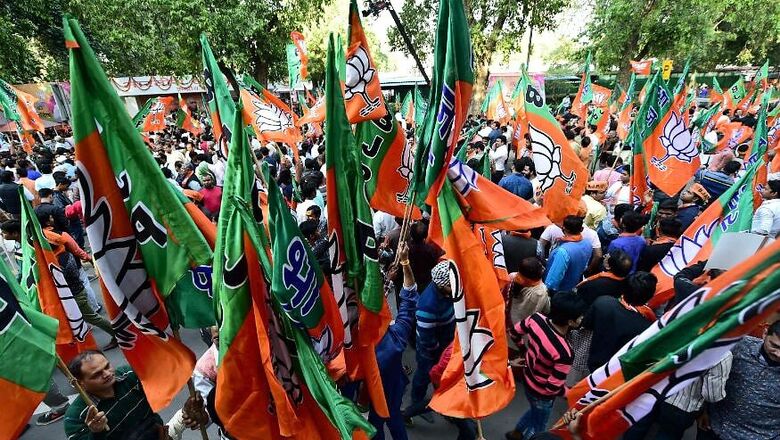
views
New Delhi: American Linguists Noam Chomsky in his path-breaking Natavist Theory argues humans have innate ability to develop language. Politicians in that sense are endowed with far superior faculties. They can device a whole new set of idioms to communicate with the masses.
The turn of phrase, the pregnant pause, the subtle nod or the un-expected chuckle — they all match up to the altering fault-lines. It’s a continual process. And only the best who can innovate and reinvent at regular intervals can survive the stiff competition.
That precisely is what Siddaramaiah set out to do early this year. Fending all for himself against a resurgent BJP, Karnataka Chief Minister has less than twelve months to salvage the situation. Any help from a weakened central leadership was a far cry. So the Kuruba leader, trained in the best traditions of socialist politics, drafted a new narrative.
If BJP was establishing itself as the dominant pole in the national polity, the counter pole could well be soft sub-nationalism. It could manifest itself in so many different forms — separate state flag, hegemonic dominance of Hindi over Kannada.
The outcome of the next year’s Assembly polls notwithstanding, the experiment got traction for a beleaguered Congress in Karnataka. Perhaps it had to. For a country which reorganized its provinces on linguistic lines, it had to. For the language is not only about its origin or its syntax or the grammar, it defines so many things, the people and their past, their culture, their traditions, history.
West Bengal Chief Minister Mamata Banerjee, quietly watching the developments in Karnataka, was quick to learn and emulate. Her education minister announced Bangla would be made compulsory from class 1 to 9. There was no government order to that effect, not legislative were made to enforce the decision. But it was enough to trigger protests in Nepali speaking hill districts of the state, triggering counter-polarisation in the rest of the state.
Both Karnataka and West Bengal have offered enough evidence in the last six months to offer a credible counter-narrative to other regional satraps. Biju Janata Dal has been quick to emulate Didi in the neighbourhood.
Party PM Tathagata Satpathy tested waters recently by raking up the language issue recently when he replied to a Union minister’s Hindi letter in chaste Oriya and made a huge furore on social media. “Is this an attack on other languages,” he asked.
In Tamil Nadu, DMK leader MK Stalin has also raised the issue of “imposition of Hindi”. Tamil Nadu in the past has seen violent clashes during anti-Hindi protests, dealing a body blow to Congress. Till date, Congress has not recovered from that loss.
Telangana Chief Minister K Chandrasekhar Rao is the latest to join the language bandwagon against ‘hegemonic-dominance of Hindi’. The state government by a Cabinet decision earlier this week has made Telegu a compulsory subject from 1st to 12th standard.
But who would know about the sensitivity of the subject better than the BJP. Not very far back, in the state of Goa in 2012, the party had successfully mobilised support against giving government grants to English-medium schools. The movement sought to promote Konkani and Marathi in school education. Much to the chagrin of the then state RSS chief Subhash Velingkar, after winning elections, BJP government did not do much to address the issue. Velingkar later formed his own regional outfit to challenge the BJP in 2017 Assembly polls.
Having acquired a dominant position in the national polity, BJP may have to tread with caution as it works to expand its political footprint. ‘Corporative federalism’ needs to go beyond mere working relations between the Centre and the state.



















Comments
0 comment